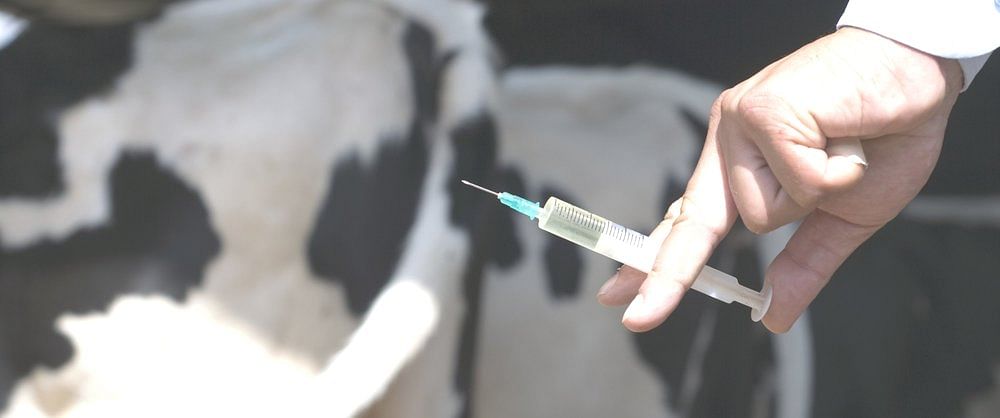J&K Department of Animal Husbandry under the Government of India sponsored National Animal Disease Control Programme (NADCP) will soon start vaccination of 2.66 lakh female calves of 4 to 8 months in the Union Territory.
NADCP programme in coordination with the J&K Department of Animal Husbandry is aimed at putting an end to the ‘Brucellosis’ disease before it turns fatal for both cattle as well as humans.
The Chief Executive Officer (CEO), Live-Stock Development Board, Jammu, Dr Daljeet Singh Bindra told Greater Kashmir, that under first phase of ‘Brucellosis’ in J&K, the female-calves of 4 to 8 months will be vaccinated for ‘Brucellosis’ using Cotton-Strain 19 vaccine to stop the spread of this contagious disease. The disease gets transmitted from animals to humans while working in close contact or milking the infected animals.
It transmits from infected animals like cow, buffalos, sheep, goat, pigs, dogs and others to humans.
Vaccination drive against ‘Brucellosis’ will be undertaken in the second phase of NADCP. Under the first phase of NADCP, the first phase of vaccination against ‘Foot and Mouth Disease’ (FMD) has already been completed. Second phase of NADCP is going to start in the month of April-May and thereafter, the ‘Brucellosis’ vaccination drive will start in J&K, Dr Bindra informed.
“We conduct milk and blood serum rapid antigen, rapid antigen and other similar tests of the cattle. We have to maintain proper hygiene and sanitization to avoid transmission of disease,” he said.
He informed, “Raw milk should not be consumed and it should be pasteurized (boiled milk) before consumption. The disease transmitted from animals to humans, being a ‘zoonotic disease’, spreads through consumption of unpasteurized milk and other milk products obtained from infected animals.”
Since it’s a bacterial disease, the official said, “It also gets transmitted if one (be it human being or animal) comes in contact with discharges and tissues of the infected animals.”
Dr Bindra said that the disease was reported in some farmers yet they were cured successfully.
The official said, “It leads to abortions and infertility problem among the animals and in humans; it normally causes fever and loss of appetite, fatigue, weakness, joint pains, etc. Though these incidents are less, the Government of India wants to control the disease among animals from transmitting in humans.”






